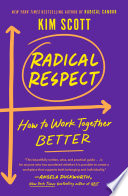

Radical Respect emphasizes the importance of respect as a foundational element in both personal and professional relationships. The book argues that respect is not merely a courtesy but a fundamental human need that fosters trust, collaboration, and innovation. The author illustrates how respect can transform workplace dynamics, leading to increased morale and productivity. By cultivating an environment where individuals feel valued and heard, organizations can unlock the full potential of their teams. The book provides practical strategies for demonstrating respect, such as active listening, acknowledging contributions, and creating inclusive spaces. These practices not only enhance interpersonal relationships but also contribute to a culture of accountability and shared purpose.
Continue readingEmpathy is presented as a crucial component of Radical Respect. The author argues that understanding others' perspectives and emotions is vital for building strong connections and fostering collaboration. Through various case studies and anecdotes, the book illustrates how empathetic leadership can lead to improved employee engagement and satisfaction. The author encourages readers to practice empathy by actively seeking to understand the experiences and challenges of others. This practice not only enhances communication but also helps to bridge gaps in understanding, ultimately leading to more effective teamwork and problem-solving.
Continue readingRadical Respect highlights the significance of diversity and inclusion in fostering a respectful environment. The author discusses how diverse teams bring a wealth of perspectives and ideas, which can drive innovation and creativity. The book outlines the challenges that organizations face in creating inclusive cultures and provides actionable steps to overcome these obstacles. By promoting diversity and ensuring that all voices are heard, organizations can create a more dynamic and resilient workforce. The author emphasizes that respect for diversity goes beyond mere compliance; it requires a genuine commitment to understanding and valuing differences.
Continue readingLeadership plays a pivotal role in establishing and maintaining a culture of respect. The book argues that leaders must model respectful behavior and create an environment where respect is prioritized. The author outlines the characteristics of respectful leaders, such as humility, transparency, and accountability. By embodying these traits, leaders can inspire their teams to adopt similar behaviors, creating a ripple effect throughout the organization. The book provides practical tips for leaders to foster respect, such as providing constructive feedback, recognizing achievements, and encouraging open dialogue.
Continue readingRadical Respect addresses the inevitability of conflict in any organization and presents respect as a key tool for resolving disputes. The author argues that respectful communication can de-escalate tensions and facilitate constructive dialogue. The book offers strategies for approaching conflict with a mindset of respect, such as focusing on shared goals, actively listening to differing viewpoints, and seeking common ground. By reframing conflict as an opportunity for growth and understanding, organizations can turn challenges into collaborative problem-solving experiences.
Continue readingThe book emphasizes that the benefits of cultivating respect extend far beyond immediate outcomes. Organizations that prioritize respect often experience lower turnover rates, higher employee satisfaction, and increased loyalty. The author presents research demonstrating the correlation between respectful workplaces and overall organizational success. By investing in respectful practices, organizations can build a strong foundation for long-term growth and resilience. The book encourages readers to view respect not as a fleeting trend but as a strategic imperative for sustainable success.
Continue readingRadical Respect calls for individuals to take personal responsibility for fostering a culture of respect, regardless of their position within an organization. The author argues that everyone has a role to play in creating an environment where respect thrives. This includes being mindful of one's own behavior, challenging disrespectful conduct, and advocating for inclusive practices. The book provides actionable steps for individuals to contribute to a respectful culture, such as engaging in self-reflection, seeking feedback, and standing up against disrespectful behavior. By encouraging personal accountability, the author empowers readers to become agents of change within their organizations.
Continue readingThe reading time for Radical Respect depends on the reader's pace. However, this concise book summary covers the 7 key ideas from Radical Respect, allowing you to quickly understand the main concepts, insights, and practical applications in around 24 min.
Radical Respect is definitely worth reading. The book covers essential topics including The Foundation of Respect, Empathy as a Core Value, Diversity and Inclusion, providing practical insights and actionable advice. Whether you read the full book or our concise summary, Radical Respect delivers valuable knowledge that can help you improve your understanding and apply these concepts in your personal or professional life.
Radical Respect was written by Kim Scott.
If you enjoyed Radical Respect by Kim Scott and want to explore similar topics or deepen your understanding, we highly recommend these related book summaries:
These books cover related themes, complementary concepts, and will help you build upon the knowledge gained from Radical Respect. Each of these summaries provides concise insights that can further enhance your understanding and practical application of the ideas presented in Radical Respect.